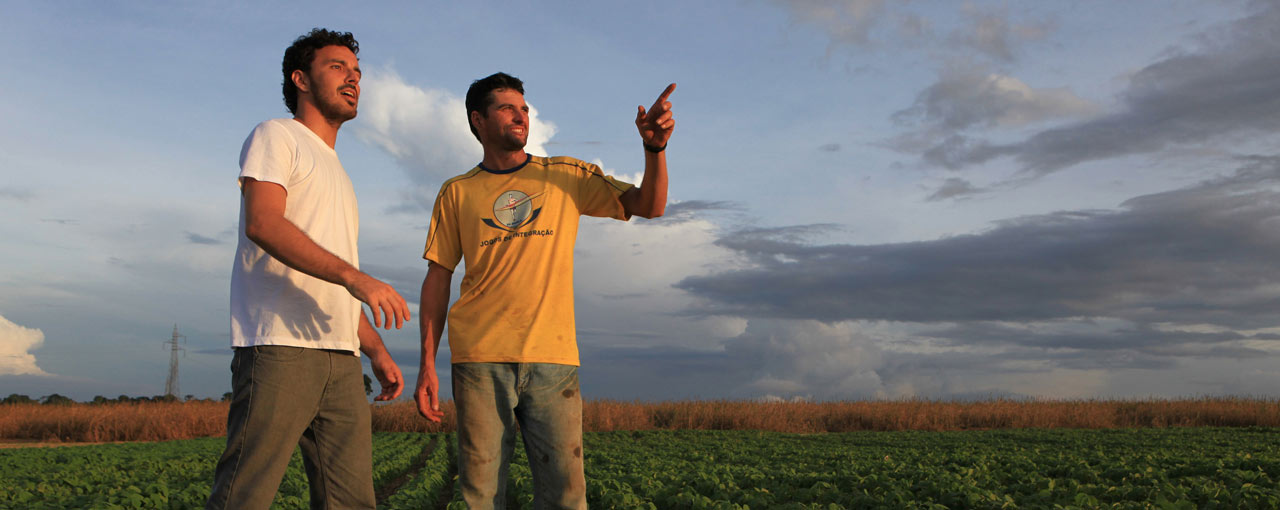Soy Community Partnerships
Improving soy sustainability by partnering with farmers
At Cargill, we’re focusing our sustainability efforts where they’re going to have the biggest impact on deforestation — on the farm. To do that, we’re developing partnerships and working with local organizations on innovative solutions that eliminate deforestation and improve sustainability across the entire soy supply chain in ways that are economically viable for farmers.
Developing Local, Sustainable, Support Networks for Soy Farmers
The Associação de Agricultores e Irrigantes da Bahia (AIBA) is the largest producer association in the state of Bahia, which is one of four states in the Matopiba region that includes much of the Cerrado. Over the past year, we have stepped up our engagement with AIBA and its members to jointly develop projects and programs that will help expand sustainability in the region. Our work together will provide local area farmers with better access to resources and information on sustainable farming methods and more ways to improve their farm’s social, environmental, economic, and health and safety indicators.
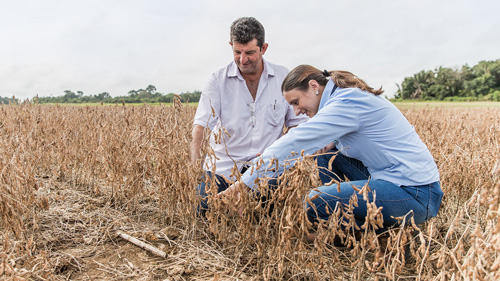
Teaching Agriculture to the Next Generation
Through our engagement with AIBA, we’ll help teenagers in the municipality of Barreiras attend an established school farm where they’ll prepare for potential future careers in agriculture, as well as study modules on environmental education, business management and community problem-solving.
Improving Local Irrigation Technology
AIBA will also be helping us focus on implementing a technology transfer for a number of the local producers who grow the fresh produce and food for the community. By providing these local farms with new irrigation technology, they can use less water and operate more efficiently as they grow nutritious food for their communities.
Expanding the Sustainable Soy Supply Chain
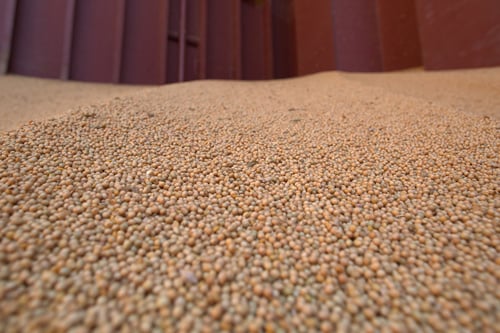
Increasing Demand for Triple S (Sustainably Sourced and Supplied) Soy
Thanks to a substantial increase in demand from customers for Cargill TripleS soy (Sustainably Sourced and Supplied), we are growing the program to include even more farms with the help of our partners, Instituto BioSistêmico, Aapresid and Solidaridad South America.
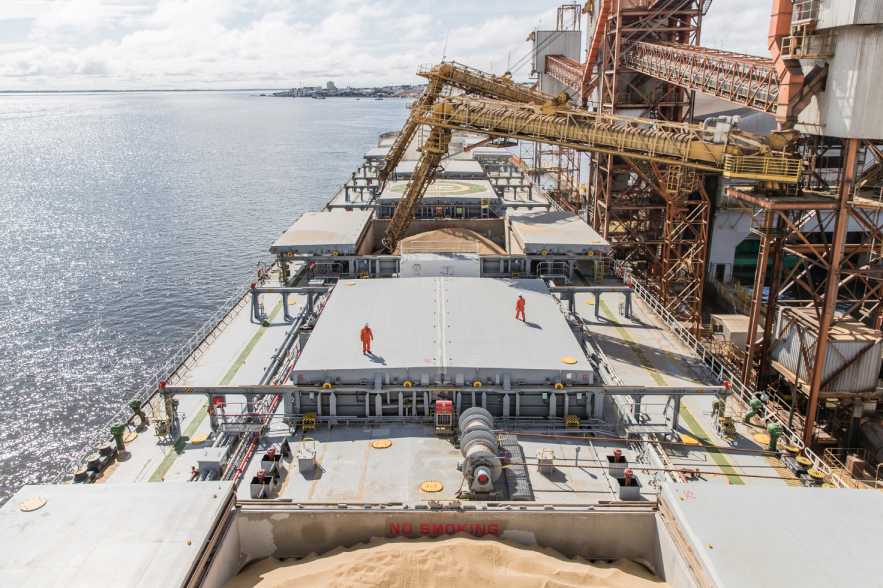
Establishing New Soy Supply Chains
The Netherlands-based ProTerra Foundation offers certifications for segregated soybeans that meet specific criteria such as being non-GMO, as well as certain sustainability standards like being deforestation- and conversion-free. With rising demand for ProTerra-certified soybeans, we established a segregated ProTerra supply chain that flows from certified farms in western Brazil over more than 2,000 kilometers of roads and rivers, through our port in Santarém to customers in the EU.
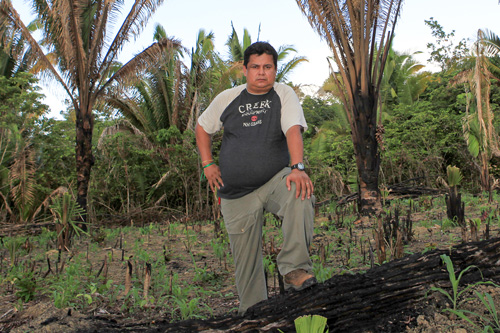
Restoring Degraded Land
We have extended our partnership with World Resources Institute in support of their role as secretariat to Initiative 20x20. During the course of our three-year partnership, we are working together to support the restoration of 500,000 hectares of degraded land by 2025. Restoration helps combat the climate challenge – by improving adaptation and resilience – and safeguards biodiversity, water sources and fertile soils while creating green jobs and growth for rural communities.
Sustainability partners
Collaboration is key to advancing soy sustainability. We take a multi-stakeholder approach to drive transformational change across the soy industry focused on protecting forests and native vegetation, supporting farmers and communities, and establishing certified supply chains to meet demand for responsibly produced soy. Listed below are some of the many partners who are part of this collaborative effort to improve the sustainability of South American soy.
- Asociación Argentina de Productores en Siembra Directa (Aapresid): We partner with Aapresid, a network of agricultural producers focused on increasing productivity while improving soil health through sustainable farming practices, as part of our Triple S certification program in Argentina.
- Associação de Agricultores e Irrigantes da Bahia (AIBA): Through our partnership with (AIBA), the largest producer association in Brazil’s state of Bahia, we co-developed projects that will help protect local natural resources and strengthen economic opportunities for residents.
- Coalizão Brasil Clima, Florestas e Agricultura: We participate in Coalizão Brasil Clima, Florestas e Agricultura, a multi-sector movement in Brazil focused on facilitating actions to promote a new economic development model based on a low-carbon economy and, consequently, respond to the challenges of climate change. The coalition is formed by more than 300 representatives of agribusiness companies and business associations, civil society organizations, the financial sector and academia.
- Instituto BioSistêmico (IBS): We are working with IBS in Brazil to scale up our Triple S certification program using IBS’ digital agricultural advisory platform, technical support and rural extension services, encouraging more farmers to grow soy sustainably.
- Sectoral Vision for Argentina Gran Chaco Platform (ViSeC): Cargill participates in ViSeC, a discussion space for the soy sector with the mission to promote and communicate sectoral actions based on science that foster more sustainable Argentine soy, with a focus on monitoring and controlling deforestation and other forms of land-use change in the Gran Chaco.
- Programa Argentino de Carbono Neutro (PACN): We participate in the oilseed table of PACN, the Argentine Carbon Neutral Program, focused on carbon footprint quantification methodologies, measurement practices and improvement of environmental practices used in the development of products for the food, beverage and bioenergy sectors.
- Soft Commodities Forum: Cargill participates with other leading food and agribusiness companies in this forum to collectively address sustainability challenges in our supply chains, focusing on soy production in the Brazilian Cerrado area. The Soft Commodities Forum aims to eliminate soy-driven conversion of natural habitats by promoting supply chain transparency, producer engagement and value chain collaboration.
- Soja Plus: Through our membership in ABIOVE, we are supporting the Soja Plus Program, which encourages environmental conservation, better agricultural practices and improving the rights and well-being of rural producers and other workers in soy supply chains.
- Solidaridad: We work with Solidaridad to implement continuous improvement programs that engage with farmers and provide technical assistance at the farm level. Solidaridad is the implementation partner for Cargill’s Triple S soy certification program in Paraguay and Sustainable Soy Path program (SSP) in Bolivia.
- Soy working group: We participate in an ongoing working group with members of industry associations – including the Brazilian Association of Vegetable Oil Industries (ABIOVE) and ANEC — as well as TNC, World Wildlife Fund, Greenpeace, Conservation International and Instituto de Pesquisa Ambiental da Amazônia.
- Sustainability Committee - CAPPRO - Cámara Paraguaya de Procesadores de Oleaginosas y Cereales: We participate in CAPPRO, a soy sector working group that is advancing coordinated action to increase sustainability in the Paraguayan soy supply chain and improve visibility with external stakeholders.
- World Resources Institute: Cargill partners with the World Resources Institute (WRI) to help equip the agricultural sector with new analysis tools. We work with WRI in Paraguay to improve sustainable soy practices. We also are working with WRI to contribute to Initiative 20x20, which seeks to restore 50 million hectares of land in South America and the Caribbean by 2030.
Collective impact
Learn more about the collective action we are taking through the Land Innovation Fund, Soft Commodities Forum and other initiatives.

